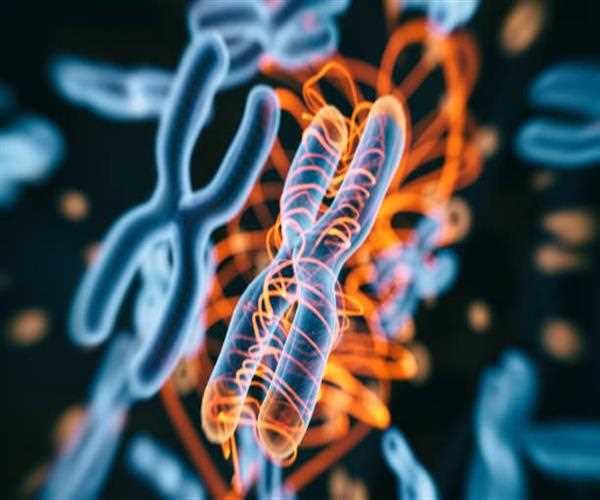
26-Jun-2023 , Updated on 6/26/2023 10:54:18 PM
Explore the contributions of nanotechnology to human lifestyle
Highlights
- Nanotechnology has revolutionized various aspects of human lifestyle, leading to significant advancements in fields such as medicine, electronics, energy, and materials science.
- In medicine, nanotechnology has enabled targeted drug delivery systems, where nanoparticles can be used to deliver drugs directly to specific cells or tissues, increasing their effectiveness and reducing side effects.
- Nanomaterials have enhanced the capabilities of electronic devices by improving their performance, miniaturizing components, and increasing energy efficiency. This has led to the development of smaller, faster, and more powerful electronics, such as smartphones, tablets, and wearable devices.
- The energy sector has benefited from nanotechnology through the development of more efficient solar cells, lightweight and high-capacity batteries, and improved energy storage devices. These advancements have the potential to enhance renewable energy production and reduce our dependence on fossil fuels.
Nanotechnology, a rapidly evolving field that deals with the manipulation of matter at the atomic and molecular scale, has emerged as a groundbreaking scientific discipline with the potential to revolutionize various aspects of human life. This interdisciplinary field combines physics, chemistry, biology, and engineering to create materials, devices, and systems with unprecedented properties and functionalities. Over the years, nanotechnology has made remarkable contributions to human lifestyle, enhancing numerous sectors such as electronics, medicine, energy, and consumer products.
This view explores some of the significant ways in which nanotechnology has impacted and transformed the way we live, improving our quality of life and opening up new possibilities for the future.
- Electronics and Computing
Nanotechnology has played a pivotal role in advancing the field of electronics and computing. With the continuous miniaturization of electronic components, nanotechnology has enabled the development of smaller, faster, and more efficient devices. Nanoscale transistors and integrated circuits have paved the way for the creation of powerful and energy-efficient computers, smartphones, and other portable devices.
Nanomaterials such as carbon nanotubes and graphene have extraordinary electrical and thermal properties, making them ideal for use in electronic components. These materials have revolutionized the fabrication of high-performance displays, flexible electronics, and wearable devices. Furthermore, nanotechnology has facilitated the production of nanoscale memory devices, leading to increased data storage capacity and faster data transfer rates.
- Medicine and Healthcare
In the field of medicine and healthcare, nanotechnology has ushered in a new era of diagnostics, treatment, and drug delivery. Nanoscale materials and devices have enabled precise imaging techniques, such as quantum dots and nanoparticles, which allow for the detection of diseases at their earliest stages. This early detection enables healthcare professionals to provide timely and effective treatments, improving patient outcomes.

Nanoparticles and nanocarriers have revolutionized drug delivery systems. They can transport therapeutic agents directly to targeted sites within the body, enhancing drug efficacy while minimizing side effects. Nanoparticles can encapsulate drugs, protect them from degradation, and release them in a controlled manner, enabling prolonged drug release and reducing the frequency of administration. Additionally, nanotechnology has enabled the development of nanobots or nanorobots, tiny machines capable of performing specific tasks within the body, such as delivering drugs or repairing damaged tissues.
Innovations in nanomedicine have also led to the development of regenerative medicine techniques. Nanomaterials and nanofabrication techniques have been utilized to create scaffolds for tissue engineering, promoting the growth of new tissues and organs. This has the potential to revolutionize the field of organ transplantation and provide alternative solutions for patients in need.
- Energy and Environment
Nanotechnology has made significant contributions to the energy sector, offering solutions for sustainable and clean energy generation, storage, and conservation. Nanomaterials, such as quantum dots and nanowires, have improved the efficiency of solar cells, enabling the conversion of sunlight into electricity with higher yields. Additionally, nanotechnology has enhanced the performance of batteries and energy storage devices, leading to longer-lasting and more powerful portable electronics and electric vehicles.
Furthermore, nanotechnology has been instrumental in the development of advanced materials for water purification and environmental remediation. Nanoparticles can be engineered to remove pollutants, heavy metals, and contaminants from water sources, making them safer for consumption and reducing the environmental impact of industrial processes.
- Consumer Products and Textiles
Nanotechnology has also found its way into everyday consumer products, enhancing their performance and functionality. Nanocoatings are widely used in various industries to provide waterproofing, scratch resistance, and antimicrobial properties to surfaces. These coatings have found applications in consumer electronics, automotive parts, textiles, and even household appliances, making them more durable and easy to clean.
In the textile industry, nanotechnology has revolutionized the development of advanced fabrics with enhanced properties. Nanofibers and nanocomposites can be incorporated into textiles to make them water-repellent, stain-resistant, and UV-protective. Additionally, nanotechnology has enabled the creation of smart textiles with integrated sensors and actuators, opening up possibilities for wearable technology and healthcare monitoring.
Beyond these sectors, nanotechnology has also contributed to various other areas of human lifestyle. For instance, in the field of food and agriculture, nanotechnology has been utilized to improve crop production, enhance food packaging, and develop nanoencapsulation techniques for targeted delivery of nutrients and flavors.
Moreover, nanotechnology has paved the way for advancements in the field of transportation. The development of lightweight and high-strength nanomaterials has led to fuel-efficient vehicles, reduced emissions, and improved safety features.
However, as with any emerging technology, there are also concerns regarding the potential risks associated with nanotechnology. The impact of nanoparticles on human health and the environment is an ongoing area of research and scrutiny. It is essential to ensure the responsible and ethical use of nanotechnology, implementing appropriate safety measures and regulations to mitigate any potential risks.
Nanotechnology has made significant contributions to human lifestyle, transforming various sectors and opening up new possibilities for the future. From electronics and computing to medicine and healthcare, energy and environment to consumer products, nanotechnology has revolutionized the way we live, work, and interact with the world around us.
The ability to manipulate matter at the atomic and molecular scale has resulted in smaller, faster, and more efficient devices, improved healthcare treatments, sustainable energy solutions, and advanced consumer products. As nanotechnology continues to advance, it holds the potential to address some of the most pressing challenges of our time, paving the way for a more sustainable, interconnected, and technologically advanced future. However, it is crucial to approach the development and application of nanotechnology with caution, ensuring that safety and ethical considerations are prioritized to harness its full potential for the benefit of humanity.

SEO and Content Writer
I am Drishan vig. I used to write blogs, articles, and stories in a way that entices the audience. I assure you that consistency, style, and tone must be met while writing the content. Working with the clients like bfc, varthana, ITC hotels, indusind, mumpa, mollydolly etc. has made me realized that writing content is not enough but doing seo is the first thing for it.
Join Our Newsletter
Subscribe to our newsletter to receive emails about new views posts, releases and updates.
Copyright 2010 - 2026 MindStick Software Pvt. Ltd. All Rights Reserved Privacy Policy | Terms & Conditions | Cookie Policy